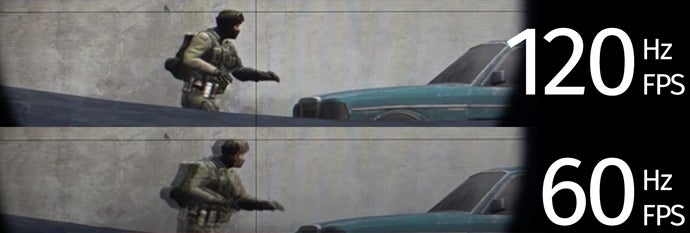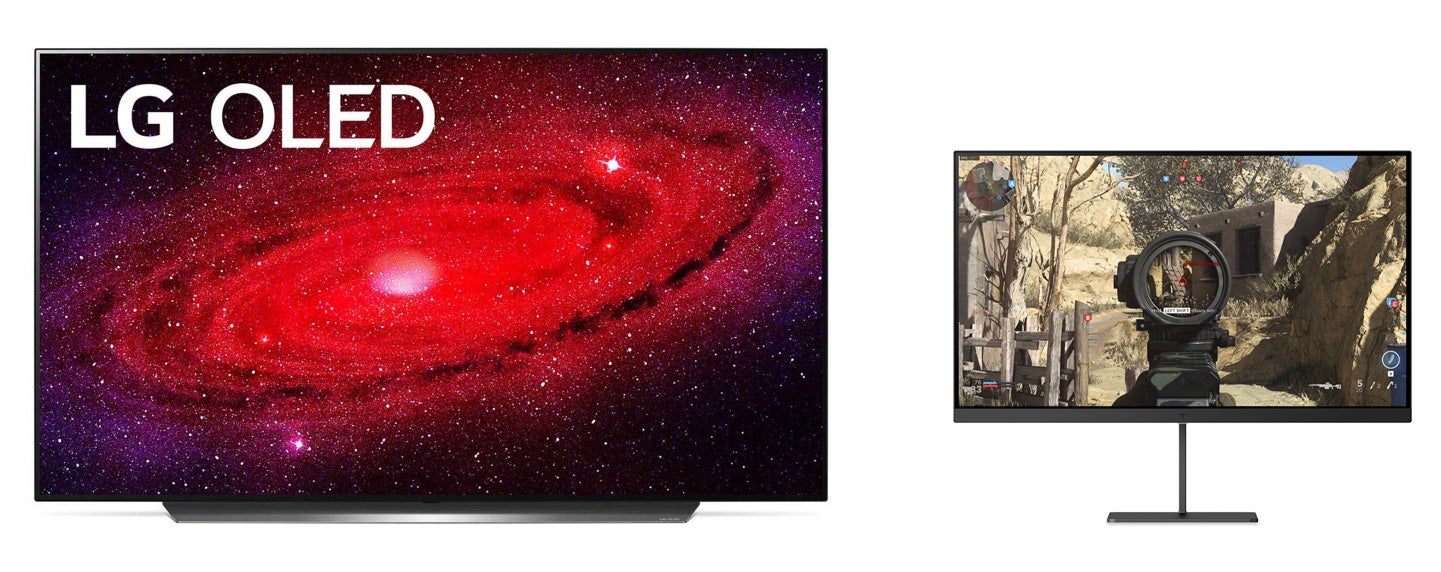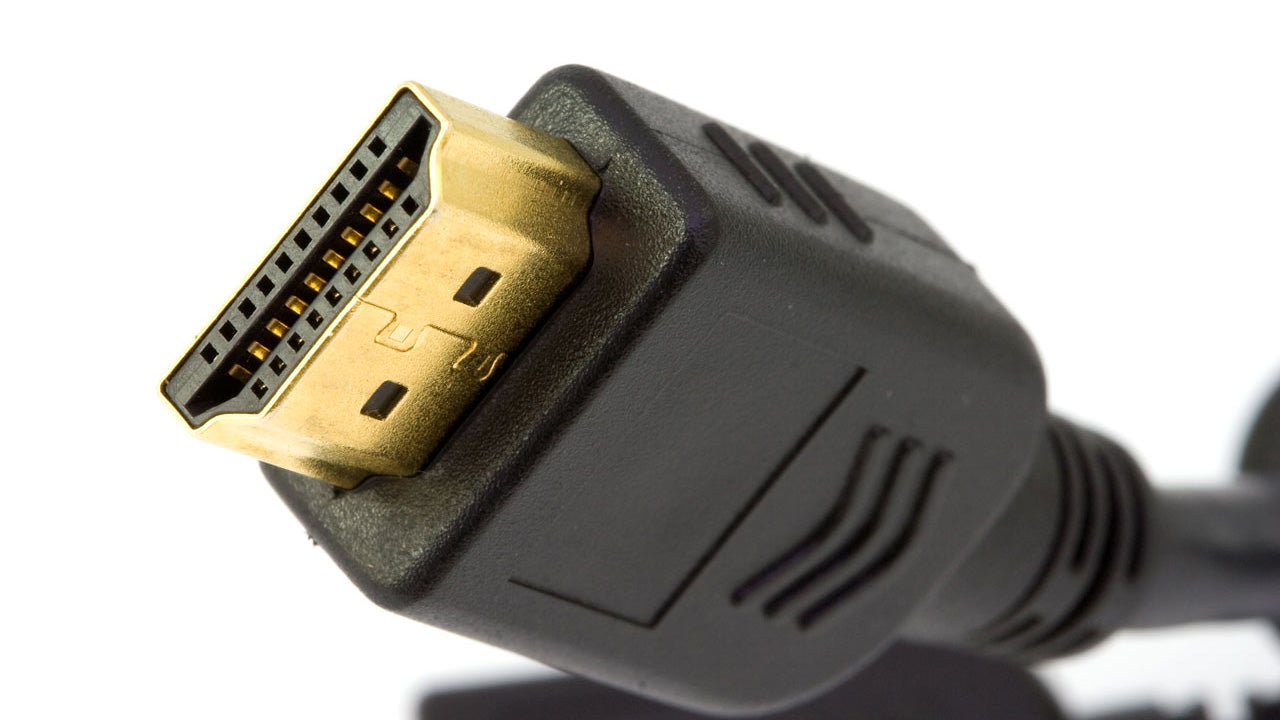We did some research and this article is the result: a comprehensive list of all PS5 and Xbox Series X games that are set to exceed the traditional 60fps limit of consoles. As well as the game list, we’ve included what you need to know about the tech underpinning 4K 120Hz televisions - HDMI 2.1 - and the best 4K TVs to choose for next-gen gaming. While TVs are the focus here, as this is how most people will play on Xbox Series X or PS5, we’ve also covered the other option: high refresh rate monitors. These have been available for PC for a few years now, so we’ve included our recommendations for the best gaming monitors that support 120Hz or higher refresh rates at a variety of resolutions. These start with currently available 1080p and 1440p models and end with the first monitor confirmed to ship with HDMI 2.1 support, allowing 120fps gaming at a full 4K resolution - perfect for next-gen. As well as games and recommended displays, we’ve included a brief guide to 120fps gaming. Scroll on, or jump directly to the topic you’re interested in below: OK. Before we get started, let’s ask a simple question:
Which PS5 and Xbox Series X games support 120fps? Digital Foundry’s TV and monitor recommendations for 120fps The Digital Foundry guide to 120fps next-gen gaming
Why is 120fps better than 60fps? Answer: the higher your frame-rate, the lower your input lag and the higher your temporal resolution. Both of these side effects make it easier to play fast-paced games like shooters or racing games, as you’ll be able to react sooner to the sudden appearance of an enemy or see the apex of a rapidly approaching corner more clearly. You can see this demonstrated in our “Beyond 60fps” video, where higher game frame-rates and monitor refresh rates make fast-moving characters in Counter-Strike move more fluidly and appear on-screen sooner. In short, it just feels better. High refresh rate monitors had a profound impact on PC gaming when they were introduced several years ago, and we expect a similar shift on console now that 120fps is on the table. Of course, there’s often a trade-off between higher frame-rates and improved visual fidelity. For games where fast action is uncommon, or where the developers want to emphasise the appearance of their world through a higher resolution and/or improved visual effects, sticking to a more traditional 30fps or 60fps target can make more sense. While the PS5’s design is ground-breaking in many ways, we’ve heard relatively little about which games will support 120fps. Right now, the list of 120fps PS5 games contains only a handful of entries, but it’s sure to grow over time. Full list of 120fps PS5 games
Apex Legends (TBC) Borderlands 3 Call of Duty: Black Ops Cold War Call of Duty: Vanguard Call of Duty: Warzone CrossCode Destiny 2 Devil May Cry 5 Special Edition Dirt 5 Doom Eternal F1 2021 Fortnite Ghost Runner Monster Boy and the Cursed Kingdom The Nioh Collection (Nioh and Nioh 2) Quake Rainbow Six Siege Rocket League The Touryst Tony Hawk’s Pro Skater 1+2 WRC 9
Did we miss a confirmed 120fps PS5 game? Comment below or tweet @wsjudd and we’ll add it to the list! Now let’s look at the other side of the coin with the Xbox Series X. Given Microsoft’s ties to PC gaming on Windows, it’s perhaps no surprise that we’ve seen a fair few games announced with 120fps support. Here are all the games we know about right now. Full list of 120fps Xbox Series X games
A Plague Tale: Innocence Alien Isolation Apex Legends (announced) Battle Chasers: Nightwar Battlefield 1 Battlefield 4 Battlefield 5 Battlefield Hardline Borderlands 3 Call of Duty: Black Ops Cold War Call of Duty: Vanguard Call of Duty: Warzone CrossCode Curved Space Descenders Destiny 2 Devil May Cry 5 Special Edition Dirt 4 Dirt 5 Don’t Starve: Giant Edition Doom Eternal ExoMecha F1 2021 Fortnite Gears 5 Ghostrunner Golf With Your Friends Halo Infinite Halo: Spartan Assault Halo: The Master Chief Collection Hellblade: Senua’s Sacrifice Hollow Knight: Voidheart Edition Hyperscape Island Saver Jydge King Oddball Lego Marvel Superheroes Lego Marvel’s Avengers Lego The Hobbit Mad Max Mass Effect Legendary Edition Metal: Hellsinger Metro 2033 Redux Metro: Last Light Redux Minecraft Dungeons Mirror’s Edge Catalyst Monster Boy and the Cursed Kingdom Moving Out My Friend Pedro New Super Lucky’s Tale Ori and the Will of the Wisps Orphan of the Machine Overcooked! 2 Overwatch Paladins Plants vs Zombies Battle for Neighborville Plants vs Zombies Garden Warfare Plants vs Zombies Garden Warfare 2 Power Rangers: Battle for the Grid Psychonauts 2 Quake Rainbow Six Siege Realm Royale Rocket League Rogue Company Samurai Shodown Sea of Thieves Second Extinction Smite Star Wars Battlefront Star Wars Battlefront 2 Star Wars Squadrons Super Lucky’s Tale Superhot Superhot: Mind Control Delete The Falconeer The Gardens Between The Lego Movie Videogame The Touryst Titanfall Titanfall 2 Totally Reliable Delivery Service Tony Hawk’s Pro Skater 1+2 Unravel 2 Unruly Heroes Untitled Goose Game WRC 9 Zombie Army 4
Did we miss a 120fps game confirmed for Series X or Series S? Let us know in the comments or tweet @wsjudd! Backwards compatibility could also result in 120fps titles, with Series X running some previous-gen games at double their original 60fps frame-rate. The Xbox Series S should also be able to run games at 120fps, albeit at a lower resolution, but some details here remain unconfirmed. Best 120Hz 4K TVs for PS5 and Xbox Series X
LG CX OLED (via HDMI 2.1) Samsung Q80T QLED (via HDMI 2.1) Sony XH9005/X900H (via HDMI 2.1, to arrive via future software update) LG NanoCell 85/NanoCell 86 (UK)
Note: The 49-inch Q80T has a 60Hz panel instead of the 120Hz panel used in the larger sizes. It also lacks support for variable refresh rates and suffers from worse viewing angles, so we recommend the 55-inch size or larger for most people. Gaming monitors are also a great choice to pair with the PS5 or Xbox Series X, but be aware that - as of writing - no currently available models support the HDMI 2.1 standard. However, you should still be able to play at 120fps at lower resolutions, like 1080p and 1440p, using HDMI 2.0. Note that you may need to run with Adaptive Sync disabled to reach 144Hz at 1440p. One benefit of this is that these monitors are considerably cheaper than 4K 120Hz alternatives. The first 4K 120Hz monitor announced to support HDMI 2.1 is the Eve Spectrum, linked below, and we expect more HDMI 2.1 monitors to arrive by the end of the year. Best 120Hz monitors for PS5 and Xbox Series X
AOC 24G2U (1080p 120Hz via HDMI 1.4) BenQ EX2780Q (1440p 120Hz via HDMI 2.0) LG 27GL850 (1440p 120Hz via HDMI 2.0 w/ VRR disabled) Eve Spectrum (4K 120Hz via HDMI 2.1)
Put simply, HDMI 2.1 is a new standard that increases the amount of data that can flow through an HDMI cable. While the port looks the same as the HDMI we’ve been using for years, that increase in bandwidth requires new equipment: new cables, new source devices (eg next-gen consoles and graphics cards) and new receiving devices (eg new TVs and monitors). If everything in the chain supports HDMI 2.1, then you get several features. The most important feature for our purposes is the ability to send more frames per second at a given resolution. On the earlier HDMI 2.0 standard, you can only send a 4K image 60 times per second. On HDMI 2.1 that doubles, so you can send a 4K image 120 times per second. Other features include an auto low latency mode, prompting your TV to disable some of its processing in exchange for lower input lag, and support for variable refresh rates, which eliminate screen tearing and judder without the excessive input lag of simple v-sync. Variable refresh rate standards are their own topic, but implementations include HDMI VRR (built into the HDMI 2.1 standard), FreeSync (for AMD graphics cards) and G-Sync (for Nvidia graphics cards). What’s the difference between 120Hz and 120fps? Hertz (Hz) refers to the number of times that a screen refreshes per second. The maximum refresh rate is an intrinsic part of each model of TV or monitor, with most TVs being limited to 60Hz but some being capable of 120Hz. Gaming monitors are also commonly available in 60Hz and 120Hz varieties, but even higher values - 144Hz, 240Hz and even 360Hz are supported by some models. Frames per second (fps) refers to the number of images that are being generated by the console or PC per second at a given time. This can be locked to a certain value, normally to keep new frames coming at a steady rate, or unlocked to allow for higher frame-rates in areas of the game that are less demanding to render. Ideally, these two figures should be similar most of the time for you to benefit from the lower input lag and improved temporal resolution we mentioned earlier. For example, if your screen refreshes 120 times per second and your console provides 120 new frames every second, then you’ll get the maximum benefit of each spec. If your console can only provide 60fps, then you won’t see any benefit from using a 120Hz screen over a more commonly available 60Hz one. Conversely, if your console can generate a steady 120fps but you don’t have a 60Hz screen, then you’ll get a small boost to responsiveness* but not nearly as much as you would with a 120Hz screen. If you’re interested in fast-paced games, then having a 120Hz screen makes a lot of sense. Even in situations where your console is generating between 60 and 120fps, you’ll still get a more responsive picture on a 120Hz screen than on a 60Hz one - and the closer to 120fps you get, the more fluid things will appear. We’re still a few months from the launch of either console, so we don’t know how games will perform - even for games with 120fps targets, we could see a completely locked 120fps or frame-rates that dip quite a bit lower. However, the increase of processor and graphics power on both machines suggests that 120fps is a viable target, and we’re excited to see how things shake out. What about Xbox Series S? In theory, the Xbox Series S should run any 120fps Xbox Series X games at a similar frame-rate but at a lower resolution. However, most developers haven’t detailed exact performance, so we’ll have to see how things go as we get closer to launch.



